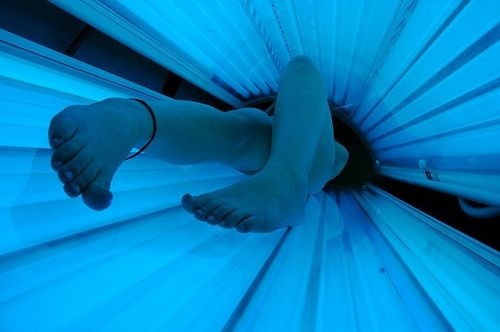Tanning Bed Dangers Greater Than Previously Thought

The main kind of radiation used in tanning beds (UVA radiation) was found to cause more damage to skin than previously thought, according to a new study published in the Journal of Investigative Dermatology.
UVA, which penetrates the skin more deeply than UVB, has long been known to play a major part in skin aging and wrinkling but until now scientists believed it did not cause significant damage in areas of the epidermis – the outermost skin layer - where most skin cancers occur.
The new study found that UVA rays can in fact cause significant lesions in the deepest layers of the skin similar to the ones seen in early skin cancer.
"Tanning salons still tend to claim that UVA is safe, but that's nonsense", said Dr. Antony Young, author of the study, according to the Daily Mail. "It may be more carcinogenic than previously thought."
Researchers shined UVA1 and UVB rays on the buttocks of 12 healthy volunteers and after analyzing DNA damage they found that UVB rays mainly damaged the skin's top layers, while the UVA1 rays formed lesions on the skin's deepest layers.
"Indoor tanning is like smoking for your skin," said Dr. Doris Day, a dermatologist at Lenox Hill Hospital in New York City, reported USA Today. "It's the single worst thing you can do in terms of skin cancer and premature aging."
Understanding UVA rays
Most people are exposed to large amounts of UVA throughout a lifetime. UVA rays account for up to 95 percent of the UV radiation reaching the Earth’s surface, according to the Skin Cancer Foundation.
Although they are less intense than UVB, UVA rays are 30 to 50 times more prevalent. They are present with relatively equal intensity during all daylight hours throughout the year, and can penetrate clouds and glass.
Tanning and Skin Cancer
Tanning, whether outdoors or in a salon, causes cumulative damage over time, according to the Skin Cancer Foundation.
A tan results from injury to the skin’s DNA; the skin darkens in an imperfect attempt to prevent further DNA damage. These imperfections, or mutations, can lead to skin cancer.



























